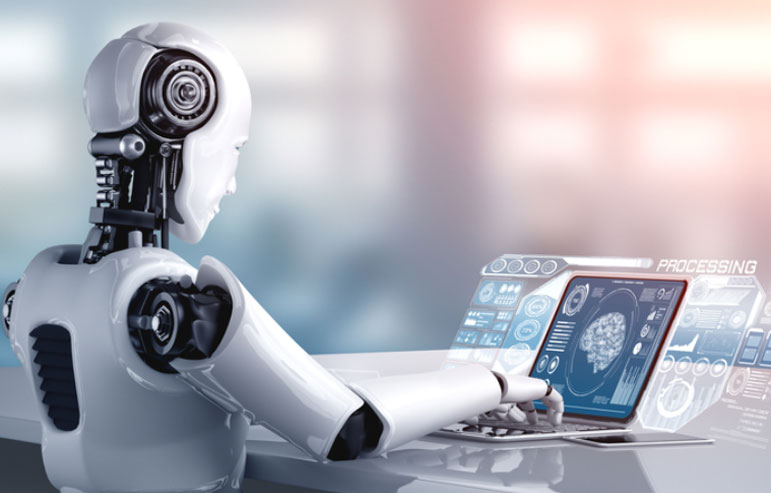The mobile app development landscape is continuously evolving, driven by emerging technologies that have the potential to revolutionize user experiences. Among these transformative technologies are artificial intelligence (AI), augmented reality (AR), blockchain, Web 3, machine learning, deep learning, and the Internet of Things (IoT). In this blog, we will explore the intersection of these technologies and their applications in mobile app development.
1.artificial intelligence
artificial intelligence has gained immense popularity and has become an integral part of mobile app development. AI enables apps to perform tasks that were once exclusive to humans, such as natural language processing, image recognition, and predictive analytics. Some popular ai-powered mobile apps include voice assistants like siri and google Assistant, recommendation systems like netflix, and virtual chatbots.
2. augmented reality
augmented reality overlays digital information onto the real world, enhancing user experiences. ar is widely used in mobile apps for various purposes, such as gaming, shopping, education, and navigation. Apps like Pokémon Go and Snapchat have revolutionized the way we interact with the virtual world, merging it seamlessly with our real surroundings.
3. artificial intelligence examples
ai has found its way into numerous mobile app development scenarios. For example, ai-powered personal assistants like apple's siri and amazon's alexa leverage natural language processing and machine learning to understand and respond to user queries. ai is also employed in image recognition apps like Google Lens and facial recognition apps for enhanced security.
4. ai chatgpt
ai-powered chatbots, such as chatgpt, have revolutionized customer service and support in mobile apps. These chatbots use natural language processing and machine learning algorithms to engage in human-like conversations with users, providing instant assistance and resolving queries. ChatGPT's ability to understand context and provide accurate responses makes it a valuable addition to mobile apps.
5. applications of artificial intelligence
The applications of ai in mobile app development are vast. AI-powered apps can automate tasks, improve personalization, enhance user engagement, optimize recommendations, provide intelligent search capabilities, and even assist in healthcare diagnostics. AI's potential in mobile app development is limitless and continues to expand as technology advances.
6. artificial intelligence and data science:
artificial intelligence and data science go hand in hand. Data science techniques, including machine learning and deep learning, provide the foundation for AI-powered mobile apps. These technologies enable apps to analyze vast amounts of data, uncover patterns, make predictions, and deliver personalized experiences to users.
7. application of ai
ai finds application in various domains of mobile app development, such as healthcare, finance, education, e-commerce, and entertainment. In healthcare, ai can assist in diagnosing diseases and suggesting treatment plans. In finance, ai-powered apps can provide personalized financial advice and fraud detection. Educational apps can leverage ai to tailor learning experiences to individual students' needs.
8. artificial intelligence robot
ai-powered robots have made significant advancements in recent years. While they may not be integrated directly into mobile apps, their impact on app development cannot be overlooked. Robots powered by ai algorithms are used in industries like manufacturing, healthcare, and hospitality, showcasing the potential of AI in creating intelligent and interactive mobile apps.
9. blockchain
blockchain technology has gained attention for its secure and transparent nature. Mobile apps can leverage blockchain to enhance security, facilitate peer-to-peer transactions, enable smart contracts, and ensure data integrity. blockchain-based mobile apps have the potential to revolutionize industries like finance, supply chain management, and digital identity verification.
10. web 3
web 3, also known as the decentralized web, is an emerging paradigm that aims to give users more control over their data and online experiences. Mobile apps can integrate web 3 principles, including
decentralization, privacy, and user empowerment. web 3 technologies such as decentralized storage, blockchain integration, and peer-to-peer networking can enhance security, data ownership, and user autonomy in mobile apps.
11. machine learning
machine learning algorithms enable mobile apps to learn from user behavior, preferences, and data patterns to provide personalized experiences. machine learning algorithms can analyze vast amounts of data and make intelligent predictions or recommendations, leading to enhanced user engagement and satisfaction.
12. deep learning
deep learning, a subset of machine learning, focuses on neural networks and complex algorithms that mimic the human brain's structure and functioning. deep learning algorithms excel in tasks such as image recognition, natural language processing, and sentiment analysis. Mobile apps can leverage deep learning to offer advanced features like facial recognition, voice recognition, and language translation.
13. iot
The iot involves connecting everyday objects and devices to the internet, enabling them to collect and exchange data. Mobile apps can act as a bridge between IoT devices and users, providing seamless control, monitoring, and automation capabilities. For example, a mobile app can control smart home devices or provide real-time data from wearable fitness trackers.
In conclusion, mobile app development is experiencing a significant transformation with the integration of emerging technologies like artificial intelligence, augmented reality, blockchain, Web 3, machine learning, deep learning, and IoT. These technologies empower app developers to create more intelligent, interactive, and personalized experiences for users. As these technologies continue to advance, we can expect even more groundbreaking innovations in the realm of mobile app development, revolutionizing the way we interact with our digital devices and the world around us.


0 Comments